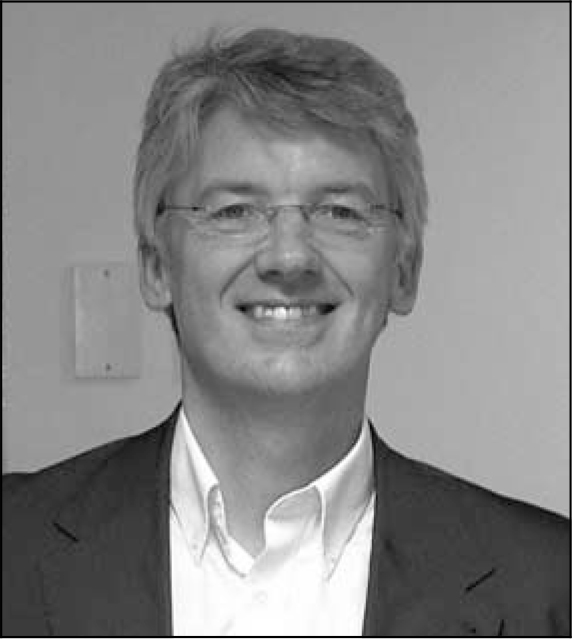Max Birchwood is Professor of Clinical Psychology, University of Birmingham, Director of Birmingham Early Intervention Services and Director of Research and Development, Birmingham and Solihull Mental Health Trust. He trained at the Universities of Reading, Hull and Birmingham. His special interests include pathways to emotional dysfunction in ‘ non-affective’ psychosis, cognitive—behavioural therapy for command hallucinations, functional magnetic resonance imaging of emotional processing in psychosis and the early detection of psychosis.
If you were not a psychologist, what would you do?
I read mathematics at university and met a woman there who was studying psychology…if we hadn't met I would probably have been a maths lecturer, computer scientist or accountant. Strange how things turn out.
What has been the greatest impact of your profession on you personally?
Living in Birmingham.
Do you feel stigmatised by your profession?
Good question. When people ask me what I do, I find myself saying outrageous things to confuse them.
What are your interests outside of work?
Skiing, sailing, modern jazz, real ale, Manchester United football team, pub quiz team, watching my sons grow up and taking all the credit.
Who was your most influential trainer, and why?
Professor A.D.B. Clarke, CBE, taught me the importance of developmental and lifespan psychopathology, that in the context of genetic or cortical disadvantage, the environment is crucial and has a lot to tell us about the developmental ontogeny of psychosis.
What job gave you the most useful training experience?
I worked for a year in what was then called a hospital for the mentally handicapped. Dreadful, dreadful. The staff, to a man and woman, all hated it, but loved the residents.
Which book/text has influenced you most?
The Logic of Scientific Discovery by Karl Popper (1959), published by Hutchinson (London). Nothing is provable, only disprovable.

What research publication has had the greatest influence on your work?
Estroff, S. E. (1989) Self, identity and subjective experiences of schizophrenia: in search of the subject. Schizophrenia Bulletin, 15, 189-196. Read it, it will change you forever.
What part of your work gives you the most satisfaction?
Primary care trusts parting with lots of money to reform services for young people with severe mental illness; money which would otherwise have certainly gone into waiting list initiatives. Research and clinical collaboration with colleagues from other disciplines who challenge your way of looking at things.
What do you least enjoy?
Negotiating with primary care trusts. Our recent research has revealed that some mental health commissioners feel stigmatised among their commissioning colleagues. If they feel embarrassed to speak up for us… we need to support commissioners to defend the mental health corner.
What is the most promising opportunity facing mental health professionals?
Evidence-based practice. In my career I’ve seen so much nonsense masquerading as treatment — it makes the mental health professions a laughing stock.
What is the greatest threat?
Not being taken seriously.
What single change would substantially improve quality of care?
Joint commissioning of psychiatric services for those with severe mental illness with non-governmental organisations, focusing on‘social inclusion’. This will counteract the tendency for our services to be a one-club golfer.
What conflict of interest do you encounter most often?
Refereeing journal articles.
Do you think psychiatry is brainless or mindless?
On the whole mindless. There are many exceptions — I’m fortunate to work with some.
How would you entice more medical students into the profession?
Encourage them to do an intercalated psychology degree.
What is the most important advice you could offer to a new trainee?
Remember that the patient in front of you could be your brother or sister.
What are the main ethical problems that psychiatrists will face in the future?
Attempting to deliver all those NICE guidelines as a general psychiatrist/psychologist: specialisation is essential as we learn more.
How would you improve clinical psychiatric training?
Mandatory training in cognitive—behavioural therapy: placements with clinical psychologists (and vice versa). Psychiatrists and psychologists have so much to learn from one another — why do we patrol the boundaries so much?
What single change to mental health legislation would you like to see?
An understanding of the sociology of risk.
What is the future for psychotherapy in psychiatry training and practice?
Should be very good: the psychotherapies are recommended in all the NICE guidelines. But why am I still not optimistic?
What single area of psychiatric research should be given priority?
Small-scale ecological (e.g. neighbourhood) study of the emerging understanding of social risk factors in schizophrenia. It used to be thought that lung cancer was an entirely genetic disorder until the link with a pervasive environmental risk factor (smoking) was discovered. I believe we are witnessing the same kind of revolution in schizophrenia.


eLetters
No eLetters have been published for this article.